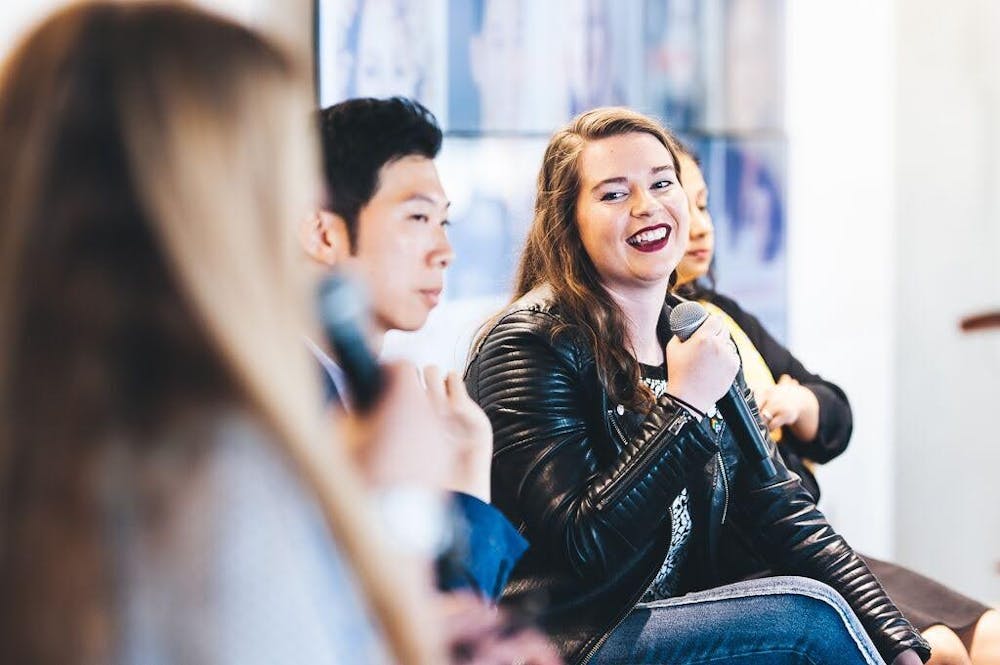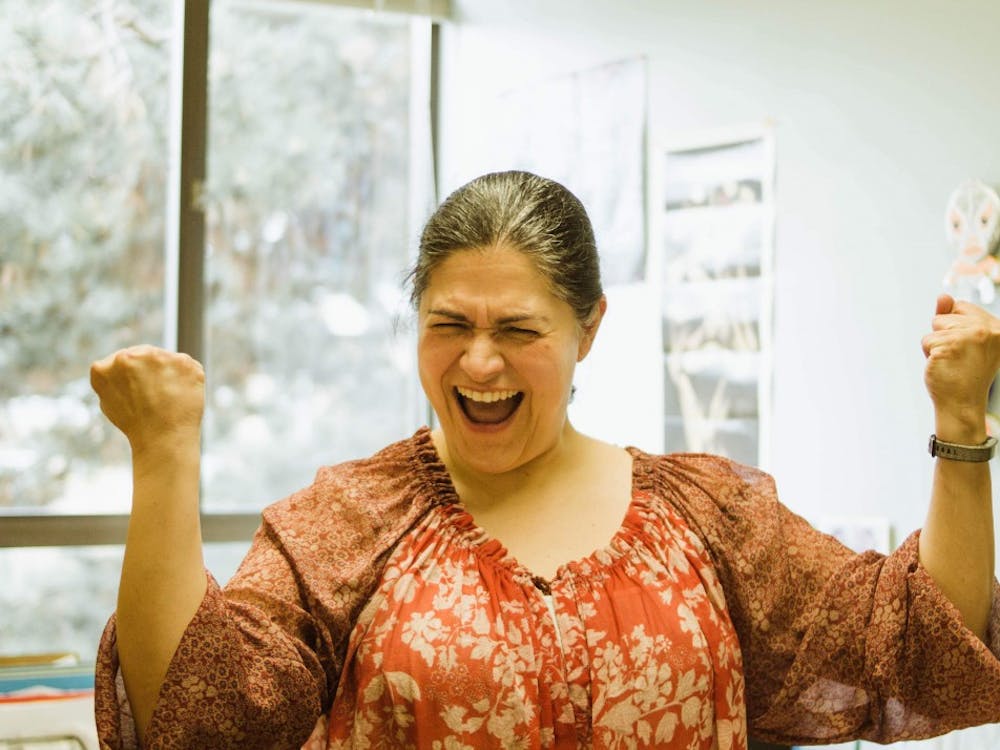When Tori Dunlap was busy building her community while living in Shipstad, studying with her fellow E-Scholar peers, or in a theater production at the University of Portland, she had no idea what successes were to come. However, professors knew that Dunlap was not quite like your typical college student who sat in the back and took notes, she sat front and center.
Dunlap recalled being so focused on the future while going to school, that she gave herself anxiety when asked about her plans after graduating. Little did she know that her work and accomplishments would be featured on news outlets such as Goodmorning America, Forbes, The Cut, CNBC and many more.
The 2016 UP alum saved $100,000 within three years of graduating, as well as created her own business, Her First 100k, which helps women become financially educated and confident with their own money moves.

Tori Dunlap, a 2016 UP alumna, saved $100,000 within three years of graduating and started her own business, "Her First 100k." Photo courtesy of Tori Dunlap.
“I set a goal for myself of (saving) 100k, didn’t know if it was entirely possible, but I thought, ‘Even if I get to 70 or 80k it’s still an accomplishment, as long as I do it before I turn 26,’” Dunlap said.
Dunlap carried out two corporate jobs before focusing her passion on empowering others to be more financially savvy. After graduating with her Bachelor of Science in Organizational Communication and Bachelor of Arts in Theater, she went on to land a marketing contract as well as become the head of marketing and communication for a global security company.
During her post-graduate jobs, Dunlap realized the major disconnect people face when it comes to managing their own money and wondered why it was going on.
“I graduated college thinking, ‘Oh, everybody knows not to overspend on credit cards,’ and ‘Everybody knows how to negotiate on salary,’” Dunlap said.
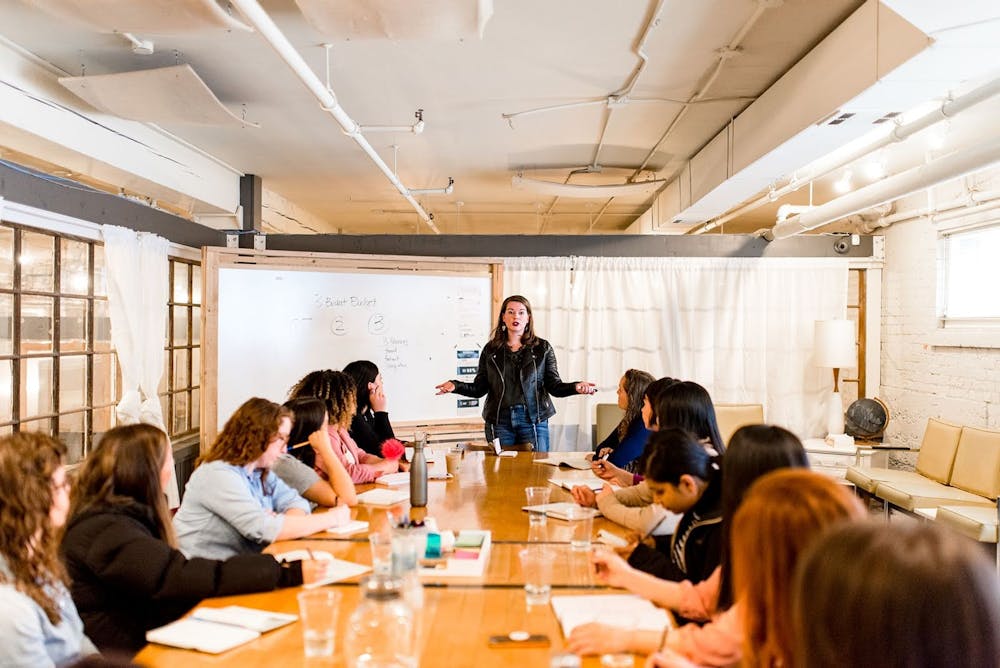
Dunlap has built her business around a fundamental need for women's financial education. Photo courtesy of Tori Dunlap.
Despite not having a business degree, she continues to strive to be the best financial advocate for those who are seeking one. Professor Jeff Kerssen-Griep reflects back on Dunlap’s time at UP as his student and commends her for all that she has accomplished since graduating.
“She’s perfectly qualified in the financial sector, you know, to be a deservedly good voice for this audience that she figured out matters to her,” Kerssen-Griep said.
Dunlap graduated without any student loan debt and recognizes that as a major privilege that others might not be able to have. On her website, she goes further in-depth on tips on how she was able to accomplish her goal before her own self imposed deadline. She stresses the motivation and determination she had while saving her money while putting 22% of her paycheck directly into her savings account.
“I personally am very motivated and an ambitious person, so that (goal) was very much the driving force,” Dunlap said.
Dunlap’s friends and coworkers constantly came to her for guidance, and after realizing the lack of financial education for women, she had found her purpose.
Her company strives to help women gain the financial education they have a right to. She stresses the importance of this especially with the wage gap, opportunity gap, and the investment gap.
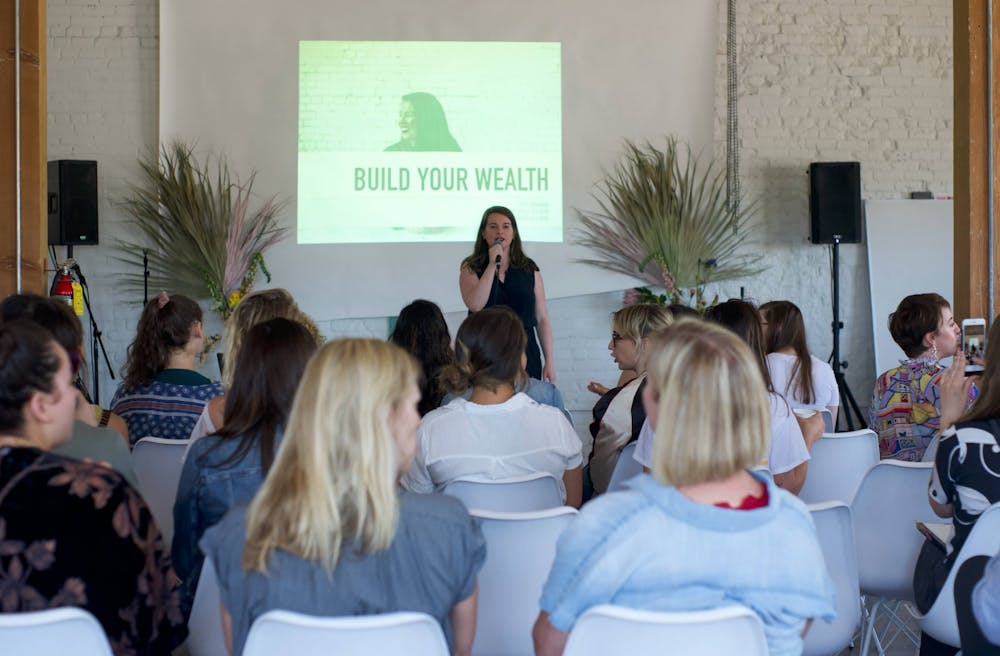
Since graduating from the University of Portland in 2016, Tori Dunlap has been featured on Forbes and Good Morning America for her work on encouraging women to become educated in managing their finances. Photo courtesy of Tori Dunlap.
She expressed her struggle as a female entrepreneur, but always tries to remind herself of why she started her company in the first place. While working at her corporate jobs, she encountered sexism in the workplace.
“It was a company of a lot of dudes,” Dunlap said about her time at the global security company. “There were not a lot of women in leadership and I had sexist things said to me at work … and I heard other things that would happen to coworkers of mine that were women.”
Even during her time at UP, being one of five women within the E-Scholars program, as well as one of the only organizational communication and theater major, she expressed how she felt looked down upon.
“They kind of wrote me off, and I went in there and was a finalist at the 100k competition.” Dunlap said.
These are the types of instances that impacted Dunlap in wanting to build her career to help build others up along the way.
Dunlap also recognizes the disadvantages that other marginalized groups might face as well such as the pay gap for women of color or how some might not be able to get the opportunity to advocate for themselves or be in the rooms where decisions are made.
“Having a financial education is the woman’s best form of protest,” Dunlap said, as she encourages every woman to take a stand by getting the financial education they deserve.
She views her own financial education, which started at a young age, as a privilege. Dunlap praises her parents for this and knows that it was a major influence as to who she is today and how she runs her business.

Photo courtesy of Tori Dunlap.
In a Forbes feature written about Dunlap, she talks about how her parents taught her how to run her own vending machine business at 9 years old to help pay for her college education.
“I knew the business thing was rare and that it wasn’t normal,” Dunlap said.
Dunlap recalls opening up her very first checking and savings account at age ten and writing checks at age 11, thinking it was the norm. She thanks her parents for being great financial advocates and being committed to teaching her how to make smart financial moves later on.
One of the financial moves that Dunlap's father taught her, that she values the most, is negotiating on salary. She suggests every college student should acquire this skill when starting out their first job.
“Negotiations are collaborations, not conflicts,” is her go-to phrase when teaching her workshops on such matters.
Dunlap commends not only the education she gained from her parents but the education she was able to gain with her time at UP. She made many connections and attained a lot of experience at UP and values the opportunities given to her to excel.
Professor Jennette Lovejoy had her in many communication classes and remembers Dunlap as someone who thought ahead of her time and openly debated with her fellow classmates.
“She always asked the really forward questions nobody else really wanted to ask and took a lot of pride in her work,” Lovejoy said.
During her sophomore year of high school, Dunlap decided she wanted to go to UP after visiting the campus and loving the focus on the communication program. Even though Dunlap was accepted by various other Universities she said, “The moment I was accepted (from UP) it was pretty much a done deal.”
Through her involvement with many of the organizations at UP, Dunlap felt it helped her make that big transition from college to adulthood a lot easier. Taking advantage of the organizations such as The Log, the Honors Program, E-scholars and internship opportunities, gave her that extra boost on her resume for future jobs.
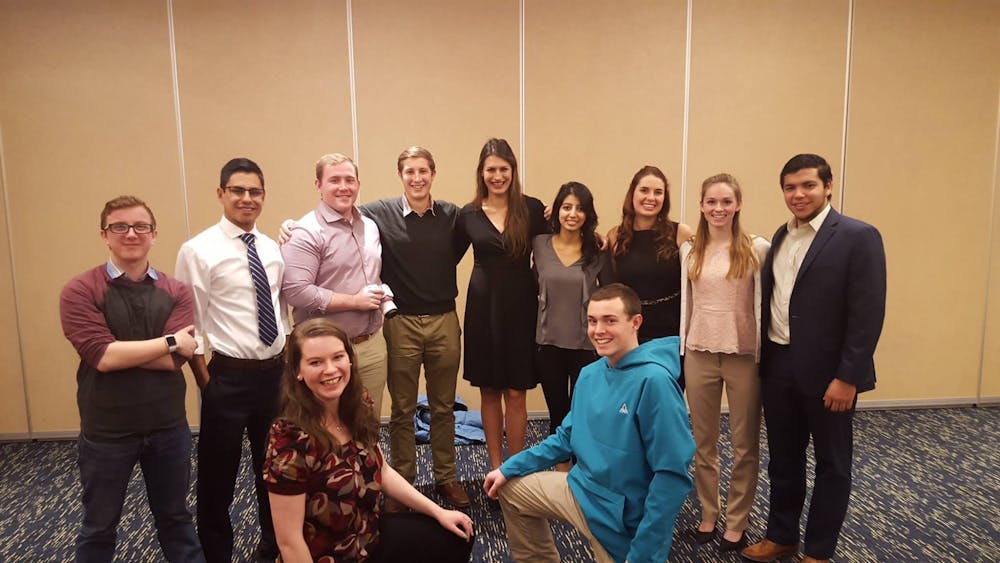
Tori Dunlap (bottom left) participated in UP organizations like E-Scholars. Photo courtesy of Tori Dunlap.
“It was hugely important in landing the job I landed,” Dunlap said of her job at The Log, “I had a very tangible thing that I can take into these companies and say, ‘I built this thing.’”
While working within an internship dealing with social media marketing, she indicated how her schooling affected her performance.
“It was really important to take the communication classes at UP, and be able to apply them in a way I wasn’t learning at school,” Dunlap said.
The advice she gives for students is to “manage your money and get a degree.”
“It’s really about how you sell yourself, the stories you tell, and skills you obtain,” Dunlap said.
She also encourages students not to stress or induce anxiety onto themselves as she has in the past.
“The whole point of life is to figure out what you're supposed to do with your life,” Dunlap said. “So rather than asking ‘What am I going to do with my life?’ just ask ‘What am I going to do next?’”
Brie Haro is a reporter for The Beacon. She can be reached at haro23@up.edu.



